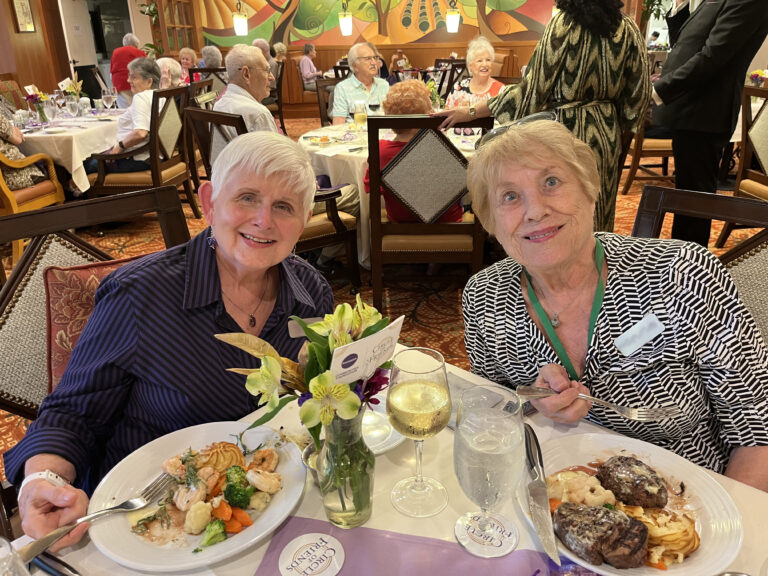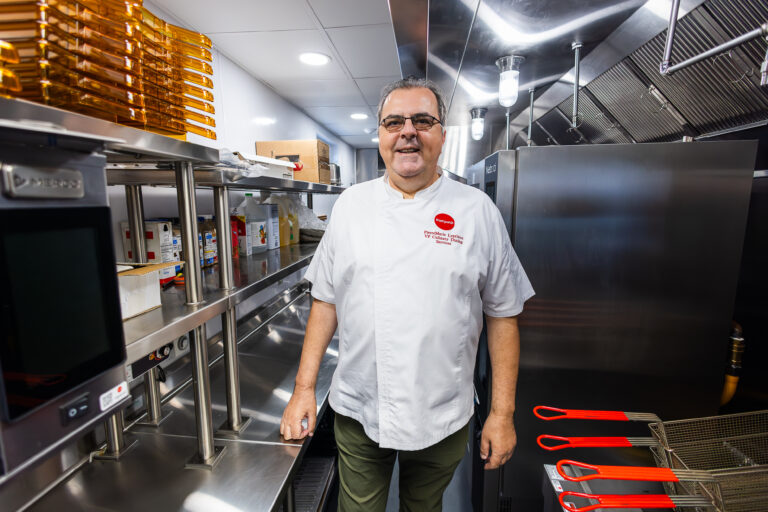August 10, 2024
Navigating the Assisted Living Decision in Oakland: A Comprehensive Guide for Families

Understanding Assisted Living
Assisted living communities are residential communities designed to provide personalized care and support for older adults who require assistance with daily activities, such as bathing, dressing, medication management, or mobility. These communities offer a balance of independence and care, allowing residents to maintain their autonomy while receiving help.
Assisted living communities typically provide a range of services, including:
- 24-hour supervision and assistance
- Housekeeping and laundry services
- Meal preparation and dining options
- Social and recreational activities
- Transportation to appointments and errands
- Access to healthcare professionals and coordination of medical care
The level of care and services offered can vary, so it’s essential to research and evaluate different communities to find the one that best meets your loved one’s needs.
Signs That It May Be Time for Assisted Living
Recognizing when it’s time to consider assisted living in Oakland can be challenging, as the decision often involves a delicate balance between preserving independence and ensuring safety and well-being. Here are some common signs that it may be time to explore assisted living options:
- Difficulty with Activities of Daily Living (ADLs): If your loved one struggles with basic tasks like bathing, dressing, or managing medication, assisted living can provide the necessary support.
- Increased Fall Risk: Recurrent falls or concerns about your loved one’s safety at home may indicate a need for a more secure and supportive living environment.
- Social Isolation: If your loved one is becoming increasingly isolated, either due to mobility challenges or the loss of a spouse or friends, assisted living can offer opportunities for social engagement and community.
- Cognitive Decline: For individuals living with dementia or other cognitive impairments, assisted living communities can provide specialized care and a structured environment to address their unique needs.
- Caregiver Burnout: If you or other family members are experiencing caregiver fatigue, assisted living can relieve some of the burden and ensure your loved one receives the care they require.
Benefits of Assisted Living for Seniors
Assisted living in Oakland can provide numerous benefits for older adults, enhancing their quality of life and supporting their overall well-being. Some of the key advantages include:
- Personalized Care: Assisted living communities tailor their services to meet the individual needs of each resident, ensuring they receive the level of care and support they require.
- Increased Social Engagement: Assisted living offers a range of social and recreational activities, encouraging residents to stay active, connected, and engaged with their peers.
- Reduced Caregiver Burden: By taking on the responsibilities of daily living, assisted living communities can alleviate the stress and demands placed on family caregivers, allowing them to focus on quality time with their loved ones.
- Access to Healthcare Services: Many assisted living communities have on-site healthcare professionals or strong partnerships with local healthcare providers, making it easier for residents to receive medical attention.
Questions to Ask When Choosing an Assisted Living Community
Selecting the right assisted living community in Oakland for your loved one is a critical decision that requires thorough research and evaluation. Here are some key questions to ask when exploring different options:
- What level of care and services are provided?
- What is the staff-to-resident ratio, and what are the qualifications and training of the caregiving staff?
- How are medication management, personal care, and other daily activities handled?
- What social, recreational, and wellness activities are available for residents?
- What is the community’s approach to memory care and dementia support, if applicable?
- What is the cost of the community, and what is included in the monthly fees?
- What is the community’s visitation, transportation, and emergency procedures policy?
- How does the community address resident safety, security, and fall prevention?
- What are the community’s policies regarding resident autonomy and decision-making?
- Can the community accommodate any specific needs or preferences of your loved one?
Tips for Making the Transition to Assisted Living
Transitioning to assisted living in Oakland can be a significant change for both the resident and their family. Here are some tips to help make the process smoother:
- Involve your loved one in the decision-making process as much as possible. Encourage them to visit and tour potential communities to understand the environment.
- Prepare your loved one emotionally by discussing the benefits of assisted living and addressing any concerns or fears they may have.
- Assist with the practical aspects of the move, such as packing, organizing, and labeling personal belongings.
- Encourage your loved one to personalize their living space with familiar items, photographs, and decorations to help them feel more at home.
- Establish a regular visitation schedule and plan activities to help your loved one adjust to their new environment.
- Communicate openly with the assisted living staff, providing them with relevant information about your loved one’s needs, preferences, and routines.
- Be patient and understanding during the transition period, as it may take time for your loved one to adapt to their new lifestyle.
Common Concerns and Misconceptions about Assisted Living
- “Assisted living means a loss of independence.” Assisted living communities are designed to promote independence and autonomy while providing the necessary support and care.
- “Assisted living is too expensive.” While costs can vary, many assisted living communities offer a range of options to fit different budgets, and the benefits often outweigh the expenses.
- “Assisted living is the same as a nursing home.” Assisted living and nursing homes have distinct differences, with assisted living focusing more on independence and quality of life.
- “My loved one will be isolated in an assisted living Community.” Assisted living communities often have robust social and recreational programs to encourage engagement and combat isolation.
- “Assisted living means my loved one will be neglected or mistreated.” Reputable assisted living communities have strict policies, procedures, and oversight to ensure the safety and well-being of their residents.

How to Support and Communicate with a Loved One in Assisted Living
- Maintain Regular Communication: Set up a schedule for phone calls, video chats, or in-person visits to stay connected and engaged with your loved one’s daily life.
- Encourage Participation in Activities: Discuss the activities and social events offered at the assisted living community and encourage your loved one to participate. This can help them build new relationships and maintain a sense of purpose.
- Address Concerns and Advocate: If you notice any issues or have concerns about your loved one’s care, communicate openly with the community staff and advocate for your loved one’s needs.
- Involve Your Loved One in Decision-Making: Continue to include your loved one in decisions about their care, living arrangements, and any changes that may occur.
- Provide Emotional Support: Acknowledge the emotional challenges your loved one may face and offer a listening ear, empathy, and reassurance throughout the transition and beyond.
- Collaborate with Community Staff: Work closely with the assisted living staff to understand your loved one’s care plan, provide relevant information, and ensure a coordinated approach to their well-being.
Conclusion
Navigating the decision to move a loved one into an assisted living community is a complex and emotional process. Still, it can also be a positive step towards ensuring their safety, well-being, and quality of life. By understanding the benefits of assisted living, asking the right questions, and supporting your loved one throughout the transition, you can make an informed decision that prioritizes their needs and preferences.If you’re considering assisted living options for a loved one in the Oakland area, we encourage you to contact St. Paul’s Towers today. Our team of experts can guide you through the process, answer your questions, and help you find the right assisted living community to meet your loved one’s unique needs. Call us at (510) 891-8542.
Read Our Front Porch Blogs

Front Porch Podcast – Episode 3: Former Pro-Wrestler Victor Ceron Pays It Forward

More than a fundraiser: Philanthropy Week builds a community of givers
